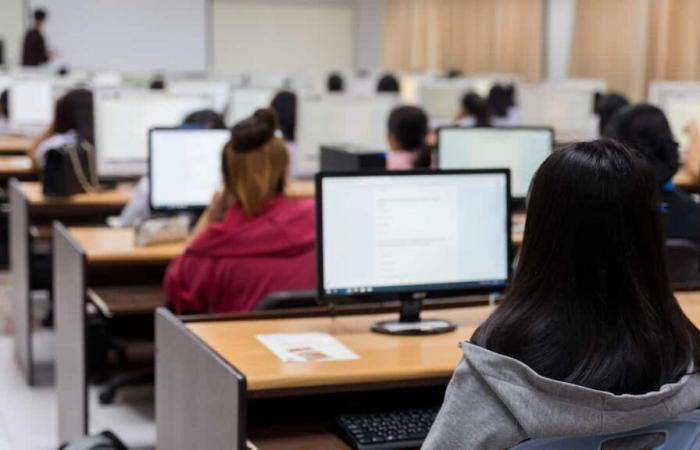The work overload of CEGEP and university teachers is very real and largely caused by concerns related to their students since the pandemic, according to a study conducted by two researchers from UQAM.
This survey, carried out among 700 teachers, allows us to conclude that “very high” emotional exhaustion represents “a big part” in the equation, affirms Mélanie Trottier, who co-directed this work with her colleague Mélanie Lefrançois. Both are professors at the School of Management Sciences at UQAM.
“The relationship with the students is changing, transforming, and the teachers are concerned about them and their needs,” explains M.me Trottier.
“When students are doing badly, it is also the case for teachers,” adds Benoît Lacoursière, president of the National Federation of Teachers (FNEEQ-CSN), which partly financed this study.
“Weakened” students
The two researchers were able to document this reality through a questionnaire, but also during interviews with teachers.
Since the pandemic, teachers have noticed “a lot of anxiety, loneliness and mental health problems” among their students and are concerned about the lack of resources to help them.
The students are “fragile”, they have difficulty “making contacts” and “even finding people to work in a team”, we can read in the research report.
The adaptations and arrangements to be put in place for students with special needs, who can sometimes represent up to half of a group, also weigh heavily on the shoulders of teachers.
Drop in academic level
Several also testified to the decline in the academic level of their students, forcing them to work extra hard to restore the level of knowledge to be acquired.
-“More and more of our tasks relate to primary and secondary education,” says a CEGEP teacher. We do more for our students than they do for themselves.”
The attitude of students towards teachers has also changed, adds another teacher: “The few students who do not like certain aspects of the course seek more confrontation. There is also greater resistance to making efforts for some since the pandemic.”
These findings come as the college network has faced budgetary restrictions since the start of the school year, including a hiring freeze
“It’s certainly worrying when needs are growing and resources are becoming increasingly scarce,” says Benoît Lacoursière.
Working hours and disconnection
Teachers’ work overload also results in a large number of hours worked (45 hours or more for 40% of respondents). Furthermore, half of them work during their vacations, again according to this study.
The numerous professional emails received in the evenings and weekends, sent by students, colleagues and bosses who expect rapid responses, also contribute to the problem, adds Mélanie Trottier.
Do you have any information to share with us about this story?
Write to us at or call us directly at 1 800-63SCOOP.



